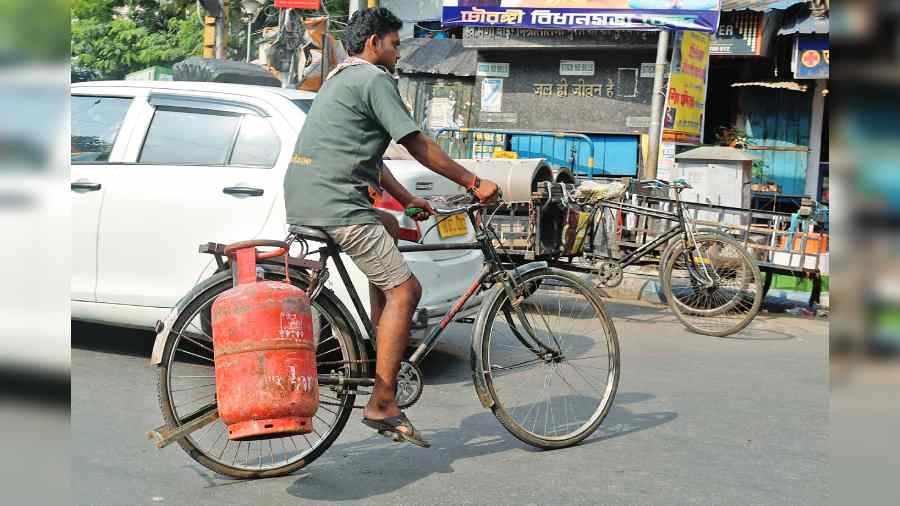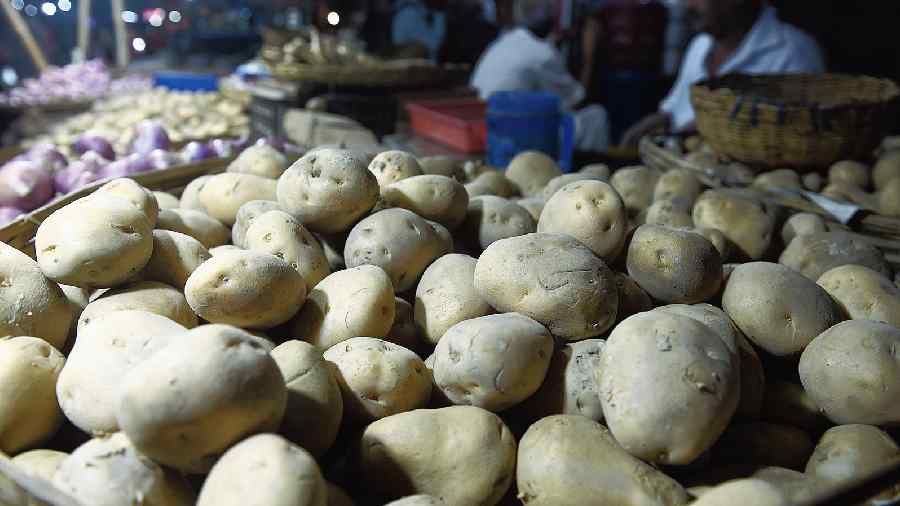The price of commercial LPG cylinders was raised by over Rs 100 at the start of this month, the latest escalation in fuel prices that have drained food businesses.
Fast food centres across the city are feeling the heat.
The price of a 19kg commercial cylinder now costs around Rs 2,450 in Kolkata. Based on purchase volume and timely payment, bulk procurers often get some discount from suppliers.
Rajesh Chaurasia, who owns Iceberg, a popular fast-food centre in south Kolkata’s Golpark, needs one cylinder every day. He uses 17kg cylinders, which cost around Rs 1,800 each after the latest hike.
His sales volume is around Rs 8,000 to 10,000 on a normal day.
For Chaurasia, a hike of Rs 100 translates to an additional burden of Rs 3,000 per month. The amount would not have hurt him so much if it were an isolated jump.
“From oil to vegetables to meat to packaging, the cost of everything has gone up.The margins are going down every day. It is becoming harder every day. I am able to survive because I don’t have to pay rent for my establishment,” said Chaurasia.
“Even then, if this (price rise) continues, I will have no other option than increasing prices. But rising prices is risky in our trade because of stiff competition,” he said.
Between Gariahat junction and Golpark, there are at least 20 more stalls selling rolls and fries.
Subir Das, who sells biryani at Dalhousie, said the rise in prices negated the increased footfall following the dip in Covid threat.
“Cooking gas prices are a big blow. But in the office para, increasing the price is very risky,” he said.
Cooking gas and edible oil are the two major components of the increased production cost. The sharp rise in fuel prices have also had a cascading effect on the prices of every other raw material and packaging costs, said owners.
Sukalyan Datta, who owns Crystal Chimney, a busy Chinese eatery on Chittaranjan Avenue in central Kolkata, said he used to procure boxes for Rs 2.50 a piece two years ago. Now, each box comes at Rs 5.
He needs around 10kg of rice every day. At wholesale rate, he used to buy rice at Rs 75 per kilo two years ago. Now, his supplier charges Rs 110 for a kilo.
Datta needs around 25 cylinders per month. He uses standard 19kg cylinders, which cost him “around Rs 2,350” after discount.
He had increased prices before Durga Puja last year.
“I have also increased prices of online orders. I am trying to find ways to save cost without compromising on quality. I have reduced margins to stay afloat. But the future is uncertain,” he said.
Campari, another popular joint in Gariahat, known for its cutlets and rolls, is also feeling the heat.
The young owner, Adipta Mitra, said the rise in prices of edible oil “had completely changed the market space”.
At the start of 2020, he bought oil at Rs 80-100 per litre. Now, he pays Rs 150-170 per litre. He has recently increased the price of a couple of items, including the bestselling chicken cutlet, which now sells at Rs 90 per piece after a Rs-10 hike.
“I cannot increase the prices of everything. Pricing affects popularity because at the end of the day, fast food consumption is not an essential activity. My business is driven by volume. The margins are low,” said Mitra.
To “save whatever costs he can without compromising on quality”, Mitra has stopped using plastic bags. He now uses reusable fabric bags and charges customers Rs 5 for each bag.

